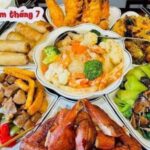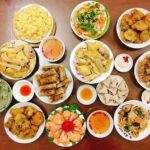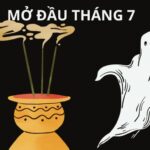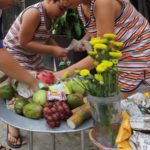The concept of wandering spirits and rituals to offer solace to these lost souls through ceremonies and offerings is prevalent in many cultures worldwide. In Vietnamese spirituality, these wandering spirits are known as “co hon.”
Co hon are believed to be the souls of those who met unjust deaths or were trapped by earthly desires, preventing their reincarnation. Consequently, these souls wander aimlessly, hungry and homeless, sometimes playing tricks on the living. The ritual of offering comfort to these souls, known as “cung co hon,” holds significant meaning in Vietnamese culture.
1 Unveiling the Tradition of Cung Co Hon in Vietnam
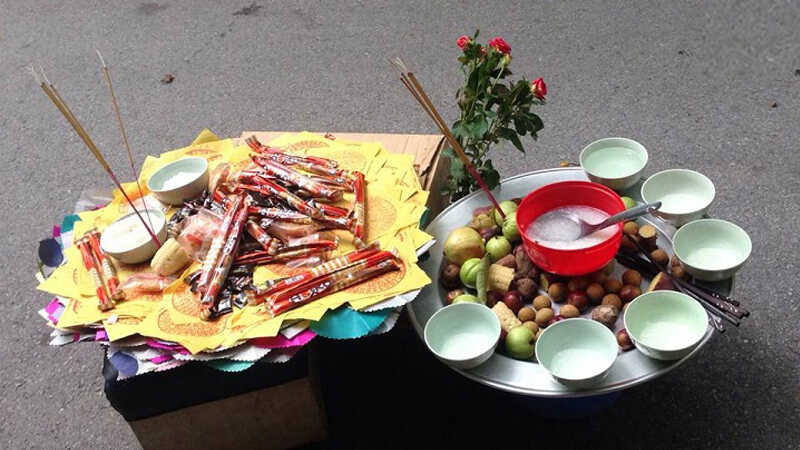 Exploring the Unique Tradition of Cung Co Hon in Vietnam
Exploring the Unique Tradition of Cung Co Hon in Vietnam
The Vietnamese observe the cung co hon ritual from the second to the sixteenth day of the seventh lunar month. While the ceremony can take place at any time of day, it is believed that performing the ritual in the evening is most favorable as daylight may diminish the spirits’ strength, hindering their ability to reach the offerings.
The offerings typically consist of rice, incense, candles, joss paper, and sweets. Interestingly, the altar is usually set up outside the house, on the porch or in the courtyard, but never inside. This is due to the belief that inviting these spirits into the home may bring bad luck to the family. The ceremony entails more than just burning incense; it also involves a specific incantation to appease the wandering souls and bring them peace.
During this time, certain customs and taboos are observed to avoid attracting misfortune. An integral part of this tradition is the act of “gi?t cô h?n,” or snatching the offerings, as it is believed that greater participation brings more luck.
2 A Global Perspective: How Other Countries Observe Similar Customs
China
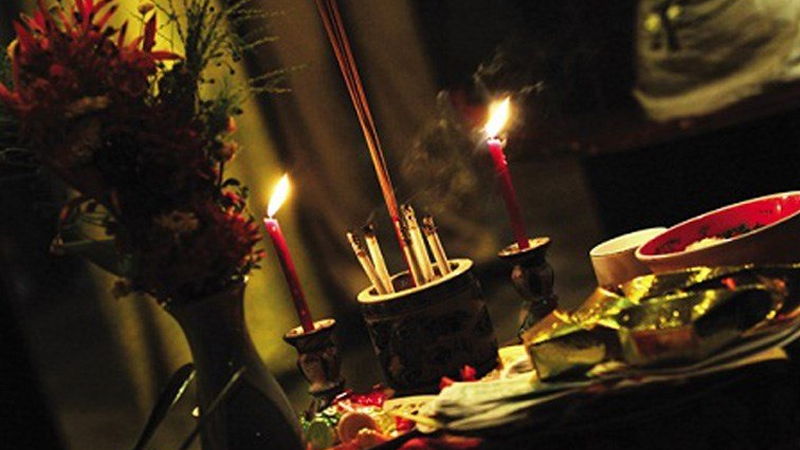
China shares a similar belief system with Vietnam regarding wandering spirits. The fifteenth day of the seventh lunar month holds particular significance as it is believed that spirits are allowed to return to the mortal world on this day. The Chinese prepare offerings for both their ancestors and these lost souls, typically including traditional dishes such as mâm ngu qu? (a platter of five types of fruit), sesame cakes, and joss paper.
On the evening dedicated to the wandering spirits, the Chinese observe specific taboos: avoiding solitary outings, taking photographs, shopping, conducting business, and killing insects. One notable difference from Vietnamese customs is the tradition of attending outdoor theatrical performances that honor the spirits and bring joy to the deceased. On the last day of the month, the Chinese release floating lanterns on rivers, believing the light guides the spirits back to the underworld. Another unique practice is ritual bathing with fresh leaves to cleanse themselves and prevent wandering spirits from following them home.
Japan
In Japan, the month of wandering spirits is known as Obon, derived from the word meaning “to hang upside down.” This name reflects the belief in aiding suffering souls in the underworld and, in Buddhism, honoring one’s ancestors.
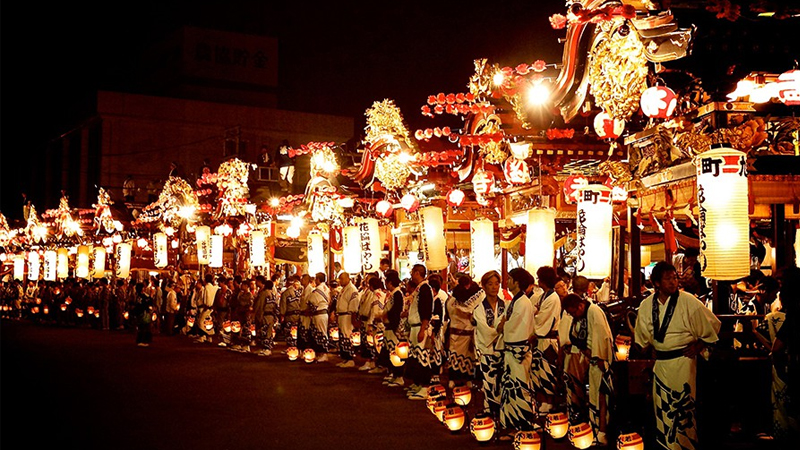
During Obon (July 14-16), Japanese families come together to spend time with their loved ones and offer ritual offerings. These offerings are carefully prepared, with dishes made from flour and shaped and colored to show respect to their ancestors.
Different regions in Japan have unique Obon traditions, often involving community activities such as shopping festivals and carnivals. Similar to other cultures, the Japanese also practice releasing lanterns to guide the spirits back to the underworld. However, their lanterns are square-shaped and crafted from bamboo and sturdy paper to ensure durability. Additionally, they perform a fire-offering ritual by lighting fires on five ridges around Kyoto, illuminating the path for the spirits’ return.
South Korea
In South Korea, the full moon of the seventh lunar month is known as Baekjong, or the day of a hundred grains, marking the time when various crops can be harvested. This day is also celebrated as Chuseok, the Korean equivalent of Vu Lan.
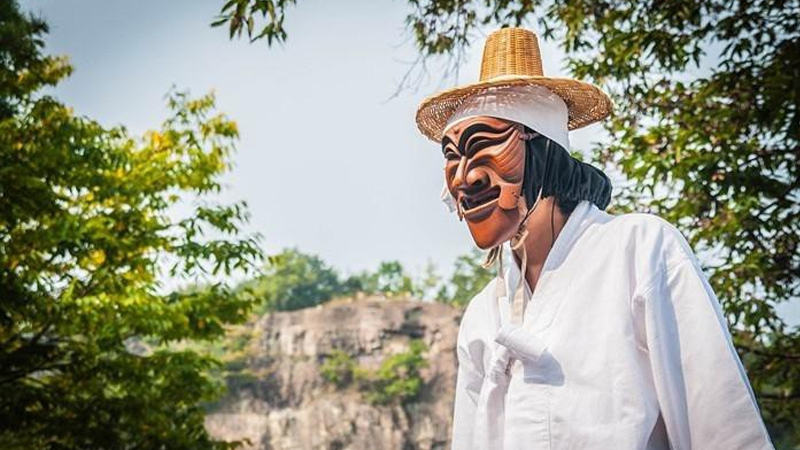
Baekjong is a day of expressing gratitude, filial piety, and remembering ancestors, but the celebrations differ from other countries. Families prepare rice and alcohol, indulge in feasts, and enjoy music and dancing together. Employers also buy new clothes for their domestic workers, and in some regions, the most productive farmer is honored as an “agricultural champion,” complete with a painted face, straw hat, and coat.
Singapore
Singapore shares similar beliefs and practices with other Asian countries, offering incense and burning joss paper to honor their ancestors and wandering spirits. However, their rituals tend to be simpler and less elaborate.
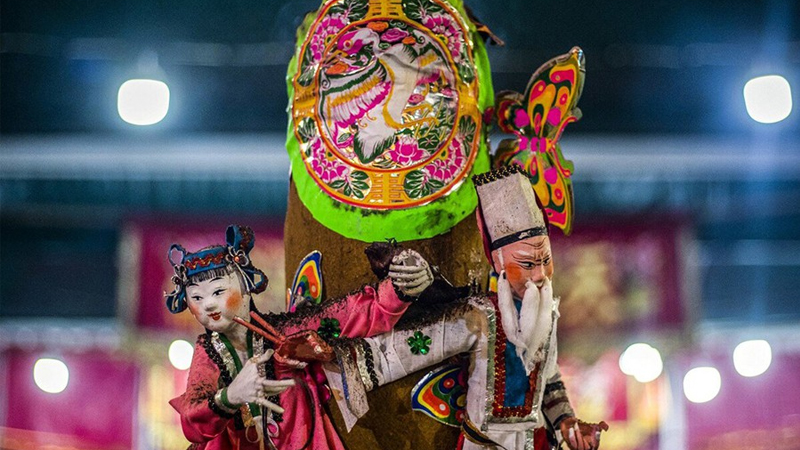
Singaporeans observe certain taboos during this month, such as avoiding moving houses or offices, killing insects, and wearing red clothes, as these actions may anger the spirits or attract unwanted attention. Similar to the Chinese, they also attend theatrical performances in the evening, leaving the front row empty for the wandering spirits. A unique practice in Singapore is the burning of paper effigies during the night of the wandering spirits, providing a confidante for the deceased.
Other Countries
Malaysia: Malaysians also perform rituals to appease wandering spirits during the seventh month, offering incense and burning joss paper on altars and roadsides. Cambodia: In Cambodia, the month of wandering spirits falls in September. One notable religious holiday during this month is Pchum Ben, which lasts for 15 days. Cambodians wear white and gather at temples to honor their ancestors, offering food to monks to be passed on to the deceased.
Hong Kong: Influenced by Chinese traditions, Hong Kong observes rituals throughout the seventh lunar month. People gather in parks, squares, riversides, and open spaces to offer incense, joss paper, and free rice to the wandering spirits. They also put on theatrical performances and movies to entertain the spirits.
This article has explored the unique and shared aspects of honoring wandering spirits in Vietnam and other countries. Feel free to share your thoughts and experiences in the comments!
The Ultimate Guide to Understanding “Giyt Co Hon”: A Fascinating Tradition That Captivates Youngsters This Season
July brings with it a unique tradition: the intriguing ‘ghost festival’. This ancient custom, observed during the seventh month of the lunar calendar, is a fascinating aspect of cultural heritage. The festival holds a special allure for children, and understanding its origins and significance is key to appreciating this intriguing ritual.


























